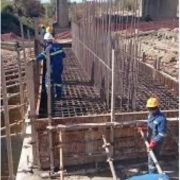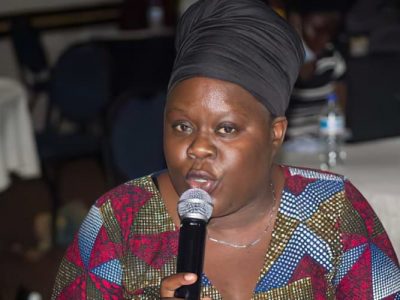By Crucial Kuwanga
Lesbian, gay, bisexual, and transgender (LGBT) persons in Zimbabwe face legal challenges not experienced by non-LGBT residents as they enjoy no legal protections from discrimination, violence and harassment.
Members of the LGBT community are heavily marginalised in both the legal and social spheres. As a result, many choose to remain in the closet, commit suicide, or emigrate, with a popular destination being South Africa due to their gay-friendly laws and this was very common during the reign of the late strongman of Zimbabwe, Robert Mugabe who regarded them as a creature that should be casted off from the face of earth.
According to a 2018 survey, 50 percent of gay men in Zimbabwe had been physically assaulted and 64 percent had been disowned by their families. 27 percent of lesbians also reported disownment.
However with the coming of the Second Republic in the country a lesbian couple identified as Tayla (33) and Melissa (27) saying in Mfakose are now living freely from legal actions by state agencies but still facing marginalisation and discrimination from the surrounding society.
The two ( Tayla and Melissa) have been together since 2015 and during the era of Mugabe they ones physically assaulted by state agencies after they have been caught hanging around on public proving to be a couple.
Tayla, who is a member of the Gays and Lesbians of Zimbabwe, an anti-homophobic advocacy group has claimed that together with other members are living a free life without any police arrest but they are still facing marginalisation from homophobic members of the public which is still a very big challenge in her society of Mfakose in Harare.
“We have parties here in various spots around Mufakose and some are in Chitungwiza as sexual minorities and I can tell you that now we have not been harassed so far by police but in the past we would be met with violence or immediate arrest.
“Yes we are increasing in numbers but the homophobic members of the public, are still a major blow to us,” she said.
Whether or not the animosity against Zimbabwe’s gays and lesbians is fading away, it remains to be seen, for many like Tayla and her lover are not so sure although at many spots now in towns like Mufakose and Chitungwiza, sexual minorities like her (Tayla) now blend easily in their numbers with others.
Amidst the booming numbers of people who are openly gay and lesbian in the country’s high density areas, Zimbabwe’s sociologists like Happton Garwe have weighed in, saying the existence of the country’s sexual minorities is fast becoming common.
“Gays and lesbians in our urban communities are now common features and even as people loathe them, the more they (gays) have appeared in public, the more acceptable they are becoming and people are just adjusting to living with them even as they don’t like them and you would find that each person is minding his or her own business and that has helped to at list emancipate the gays a bit,” said Garwe.
Based on latest statistics from GALZ, across Zimbabwe’s towns and cities, the organisation has a membership of approximately 17000.
To GALZ, this is a sharp increase of the sexual minority population in the country’s urban areas compared to about 8000 around 2015.
Brian, a 28-year old gay man who is a member of the Male Sex Workers’ organisation in Zimbabwe said they (gays and lesbians) have always been there despite homophobic attacks but now they are slowly liberating themselves of course with the great information they are getting from LGBTI organisations.
“We are still facing isolation from some members of the public but I believe we are slowly liberating ourselves from the information we are getting from LGBTI organisations,” he said.
Despite progress, the lingering stigma and discrimination that the LGBTI community faces in Zimbabwe has resulted in Brian and people of his generation leading an isolated life.
“It makes me feel safer to rather stay by myself,” said Brian, adding that all his peers and friends from the LGBTI community have since committed suicide due to discriminations and homophobic attacks from the public. “Sometimes I cry,” he sighs.
But Sylvester Nyamatendedza, who is the GALZ Services and Policy Advocacy Officer, said ‘the recent increase of sexual minorities is not a new phenomenon as those that have been oppressed and hidden due to a toxicity of the environment are simply coming out within the public and social spaces they may deem safe and open to interact.
The leadership at GALZ says that things are slowly getting better for LGBTI people in Zimbabwe as Mnangagwa’s government has not been clear on position of LGBT.
In 2017, GALZ was included as an official participant in the funding proposal developed for the Global Fund to Fight AIDS, Tuberculosis and Malaria. This helped to secure US$ 2 million for programmes that serve gay men and other men who have sex with men, the largest investment ever in an HIV and sexual and reproductive health response for the community. The funding resulted in the three GALZ drop-in centres.







Comments